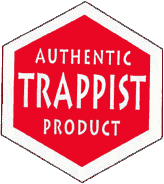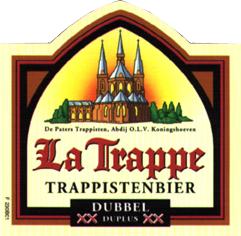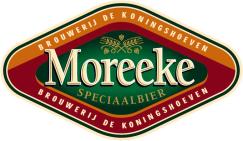 |

|
|

|
|
|
 |

home
about
features
A-Z
books

|

|

Protz:
features
reviews
tastings
|

| |
La Trappe back in the fold
by Willard Clarke, 01/06
The Koningshoeven Brewery near Tilburg in the Netherlands has been given clearance by the International Trappist Association to use the ITA logo that guarantees its beers are "authentic Trappist products".
Koningshoeven, which brands its beers La Trappe, was expelled from the association in 1999 when the brewery was bought by the commercial Bavaria group, which specialises in own-label brands for
supermarkets. The ITA had been set up just two years earlier to protect the Trappist tradition that was under threat from a growing number of "abbey beers" produced by commercial brewers. The main abbey brands are
the heavily marketed Leffe and Grimbergen beers owned by Inbev and Scottish & Newcastle respectively.
|
|

|
The other members of the association are based in Belgium and are comprised of Achel, Chimay, Orval, Rochefort, Westmalle and Westvleteren. One of the key concerns of the association is that monks must be in
control of the brewing process at each monastic brewery and that beer making is primarily to raise funds for the upkeep of the churches and the monks' work in the community. It was felt that ownership of
Koningshoeven by the aggressive and expansionist Bavaria group fatally comprised the aims of the ITA.

|
|
Koningshoeven mean the King's Gardens and the land was donated by the Dutch king to monks who had moved north from the La Trappe monastery in Normandy at the time of the French Revolution.
The rustic-sounding Schaapskoi (Sheepfold) brewery was built in the 1880s to raise funds for the upkeep of the abbey the monks had built on the land.
In 1986 a new, modern brewhouse with stainless steel vessels was installed and a commercial director was appointed to expand sales of the beers.
|
Before the arrival of Bavaria, the activities at Koningshoeven
concerned supporters of the Trappist tradition as it allowed commercial brewers to make some beers for it under licence and also produced an own-label beer for the British supermarket chain,
Sainsbury's - a deal that had to have approval from the Vatican.
The flexibility of the Koningshoeven brewery attracted the attention of Bavaria, which reached a deal with the monks to rent the brewery and produce some its own beers there as well as the La Trappe brands.
Brother Bernardus, spokesman for Koningshoeven, welcomed the fact that the brewery had been allowed back into the ITA. He said the rules of the association had not been clearly understood at the time the
deal was signed with Bavaria. Koningshoeven had applied to have the ban lifted in February 2005 and, after more than six months' deliberation, the ITA agreed to allow the brewery to use the official Trappist logo
once more.
During the years of the ban, Bavaria had continued to brand the La Trappe beers as "Trappisten bier". While beer drinkers acknowledge that Bavaria has improved the quality of the beers, which include
Blond, Dubbel, Tripel and Quadrupel, there is some bewilderment over the fact that Bavaria brews non-Trappist products, including the Moreeke and Kroon brands, on the abbey plant.
|
|

|
There are persistent rumours in the Netherlands that Heineken may buy Bavaria. Such a deal would pose a new problem for the International Trappist Association if one of the world's global
brewers became the owner of Koningshoeven.
www.latrappe.nl
|
|
home
about
features
A-Z
books
|

